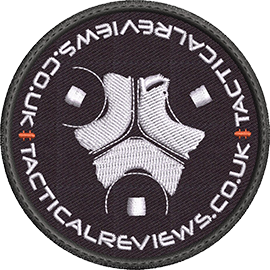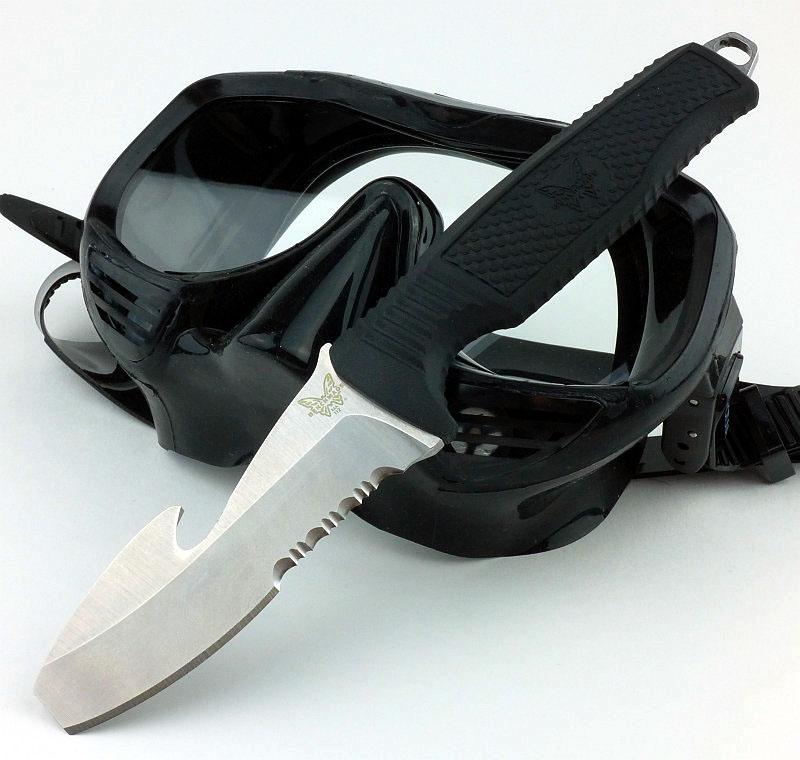This review provides further details for the Benchmade 112S H2O which could not be included in the Dive Knives 2016 – Mega Test Review
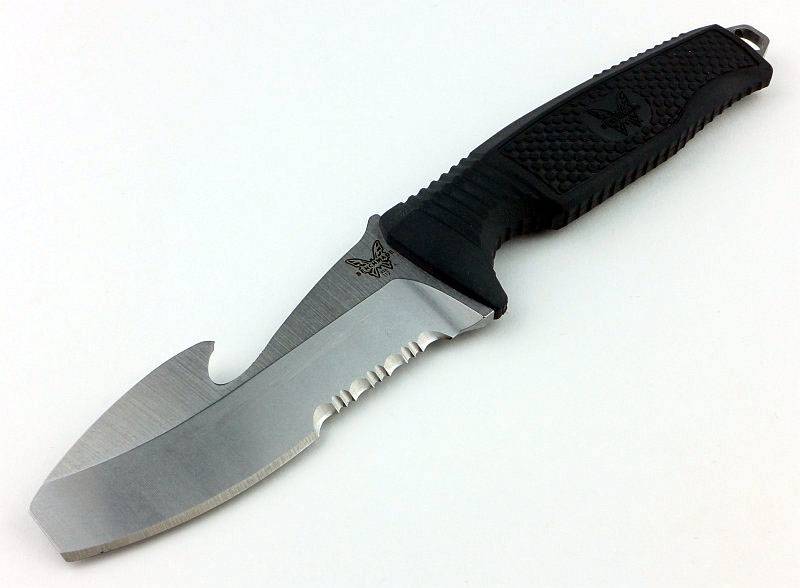
The Blade and Handle Geometry:
Most knife specifications have a basic description of the blade geometry, but in this section I will be taking a more detailed look at geometry and balance.
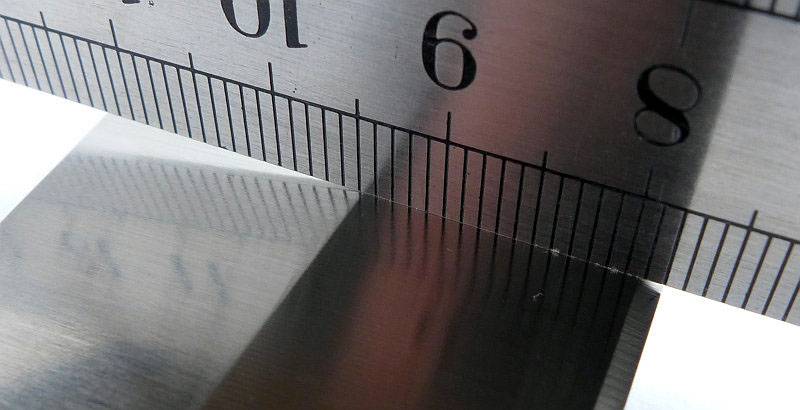
Using a set of gauges and precision measuring equipment including a Vernier protractor, callipers, fixed radius gauges and the unique Arc Master adjustable radius gauge (the one that looks like a crossbow).
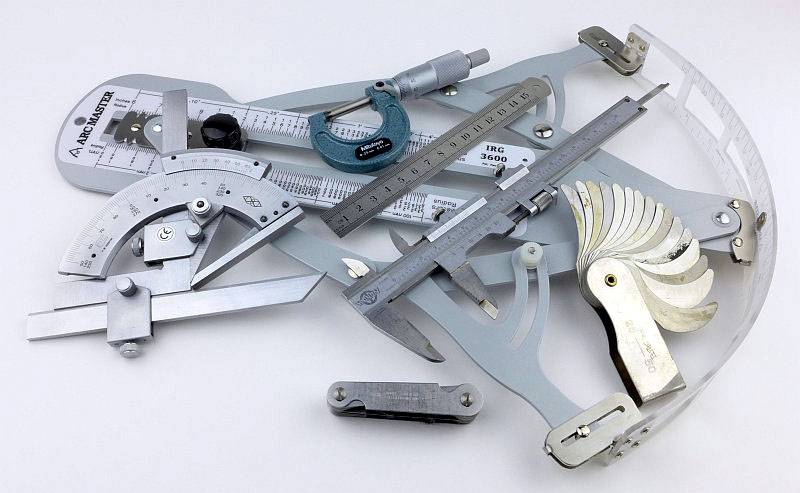
These measurements have been tabulated and are presented along with other blades.
Key aspects such as the primary bevel angle, grind type, blade depth, blade thickness, length, weight are detailed, along with balance information.
The ‘Balance relative to the front of the handle’ tells you if the knife will feel front heavy, or if the weight is in your hand (a positive value means the weight is forward of the front of the handle). The ‘Balance relative to the centre of the handle’ indicates how close to a ‘neutral balance’ the knife has in the hand.
In the case of full convex grinds the approximate centre of the grind is used for the primary bevel angle estimate.
The measurements are presented alongside some of the other knives from the Dive Knives 2016 – Mega Test Review
Please note the Benchmade 112S is incorrectly named the 112B in the table.
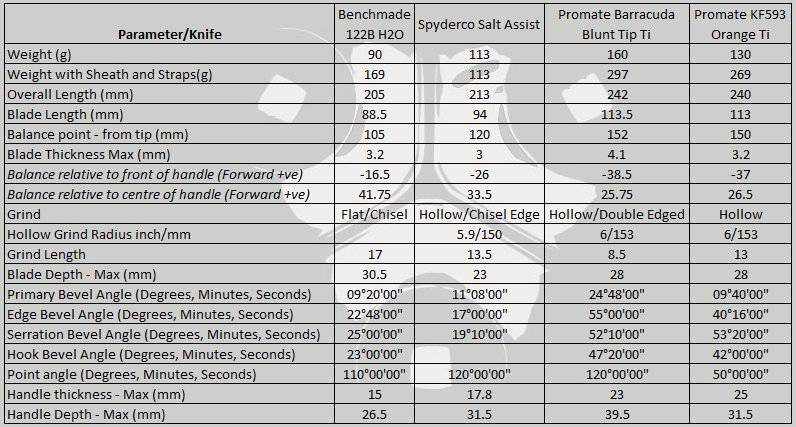
A few more details:
Benchmade’s nicely presented box.
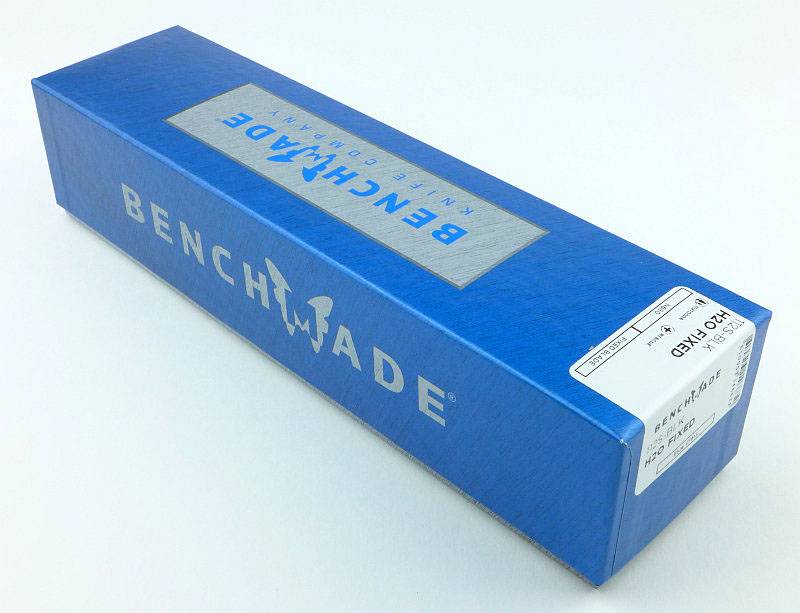
Taking the lid off the box gives your first view of the sheathed model 112S H20 diving knife.
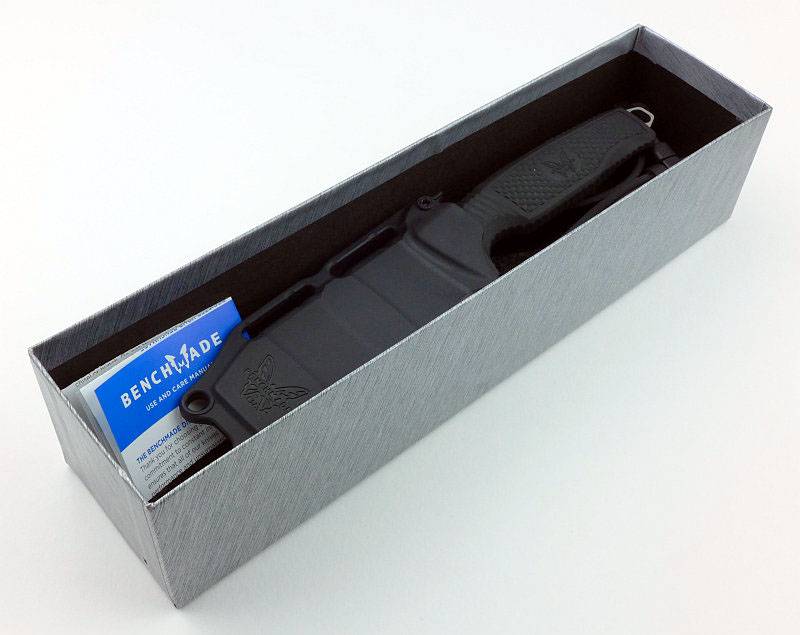
Included are the sheathed knife, a single rubber strap and a leaflet.
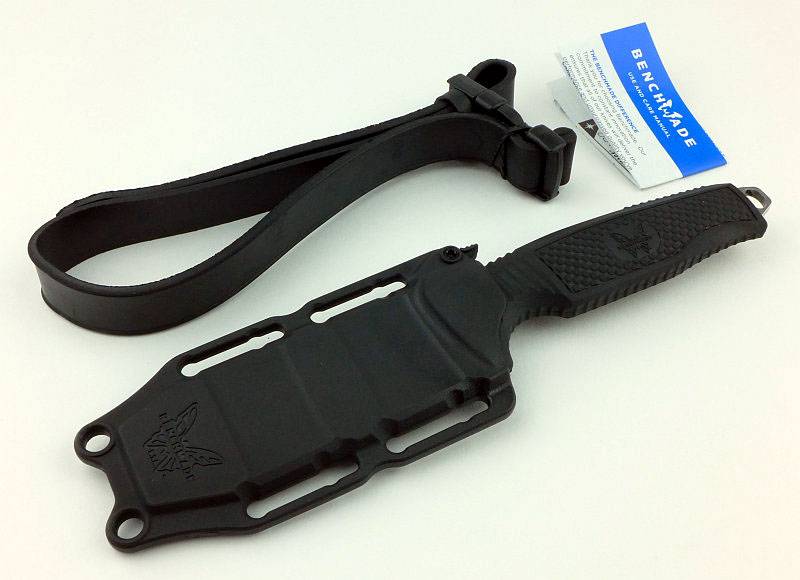
The strap, which can be used for a calf strap or arm strap has a quick release buckle.
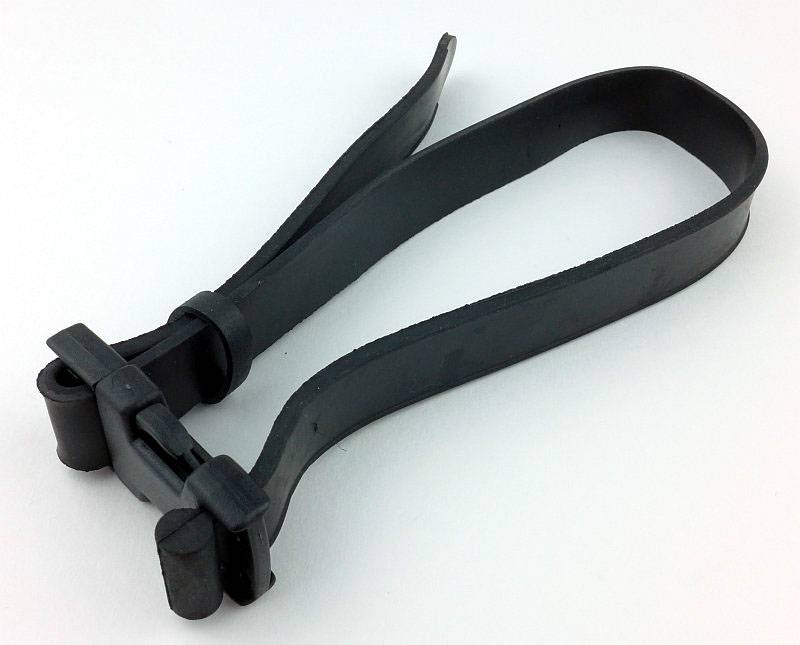
A closer look at the plastic buckle and the rubber strap’s adjustable and fixed ends.
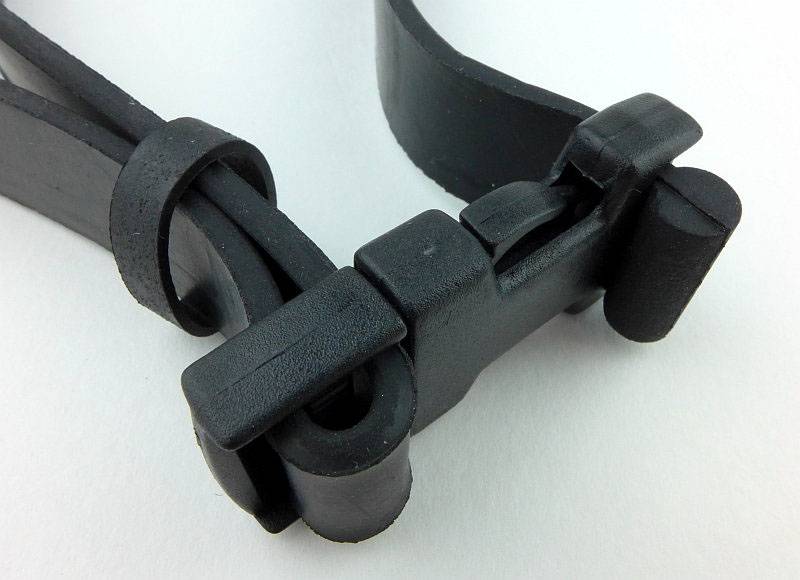
The sheathed 112S H2O is a very neat package.
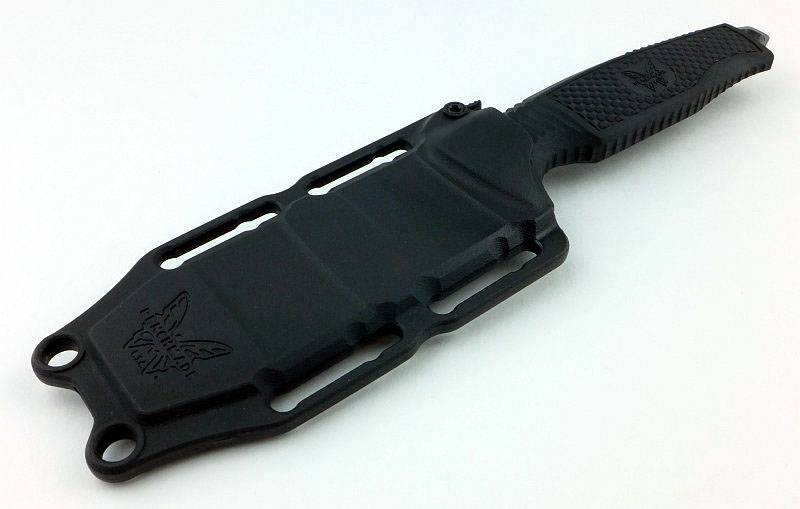
There is an essential drainage hole at the bottom of the sheath.
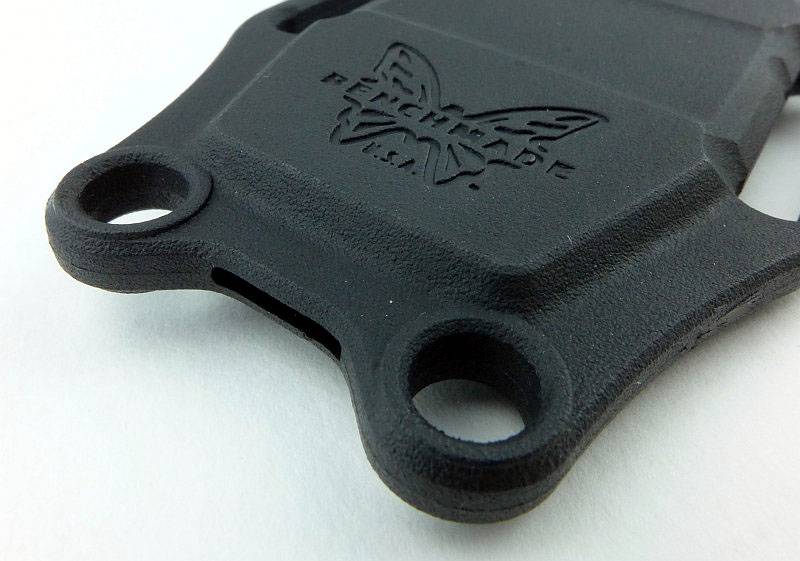
On one side of the sheath is a very neat and functional release lever which holds and release the knife.
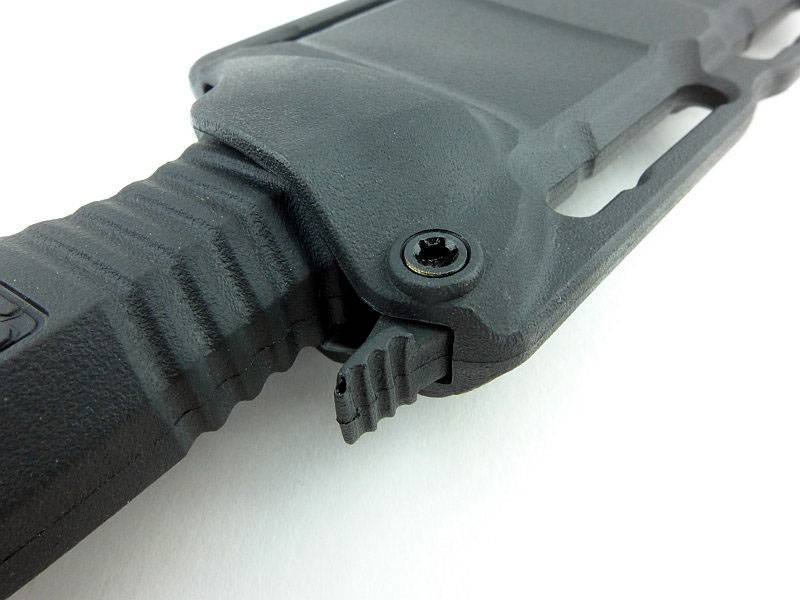
Looking in a bit closer you can see the metal pivot made of 316 Stainless Steel and hidden inside is a zinc-plated music wire spring.
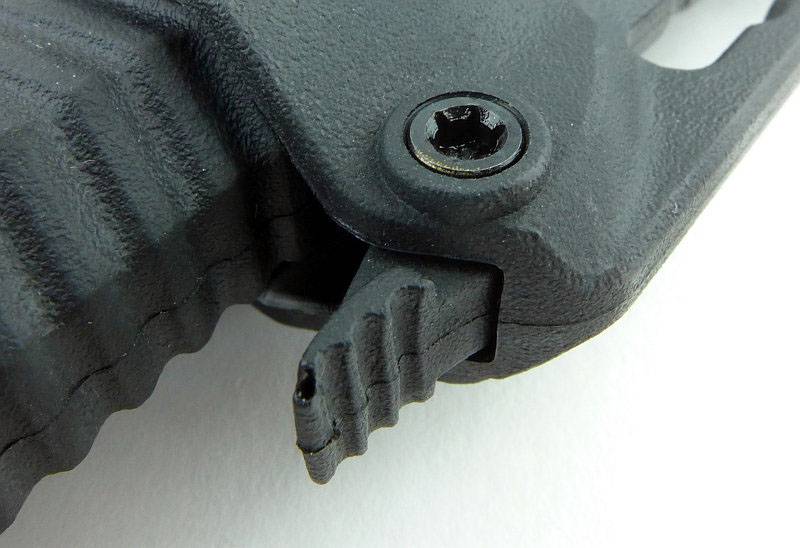
And here it is, the 112S H2O knife.
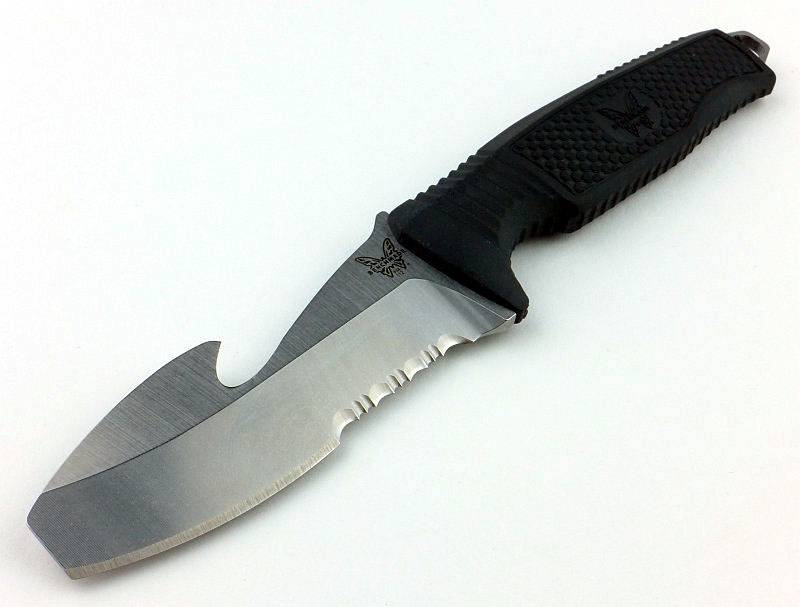
Featuring a blunt tip designed for safety and prying, there is a plain edge near the tip and a serrated edge closer to the handle.
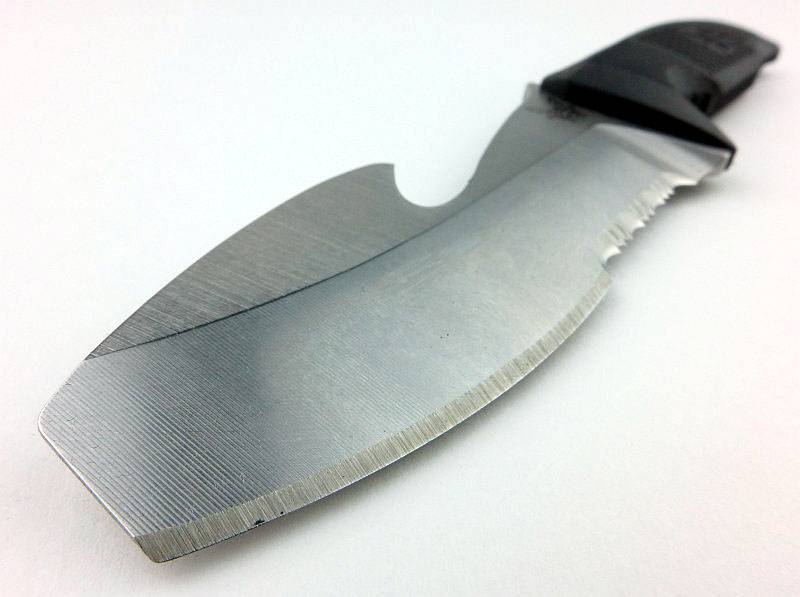
Two sizes of scallop are used for the serrations.
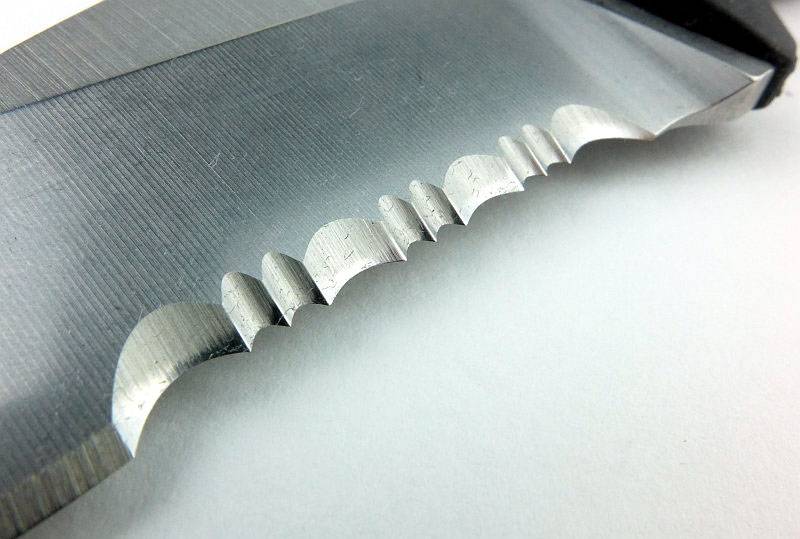
The plunge line is nicely radiused to avoid stress concentrators, especially important as the blade is designed to pry.
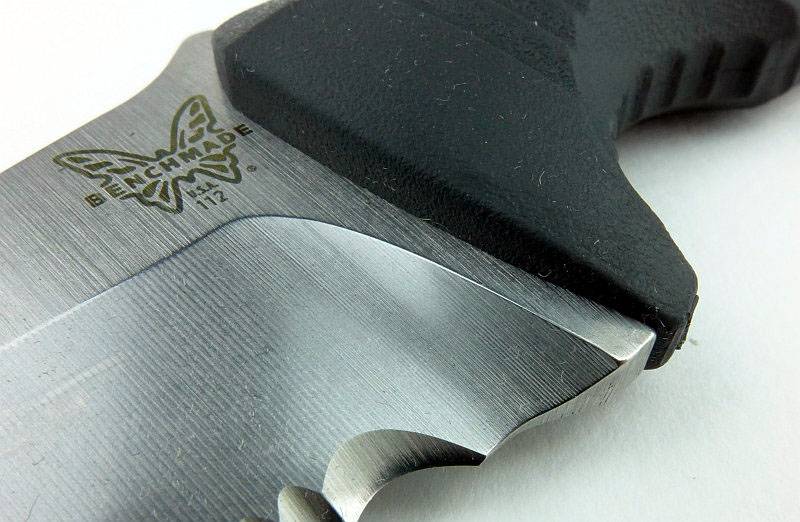
A first finger indentation combined with a grippy rubber handle, makes the 112S very sure in the hand.
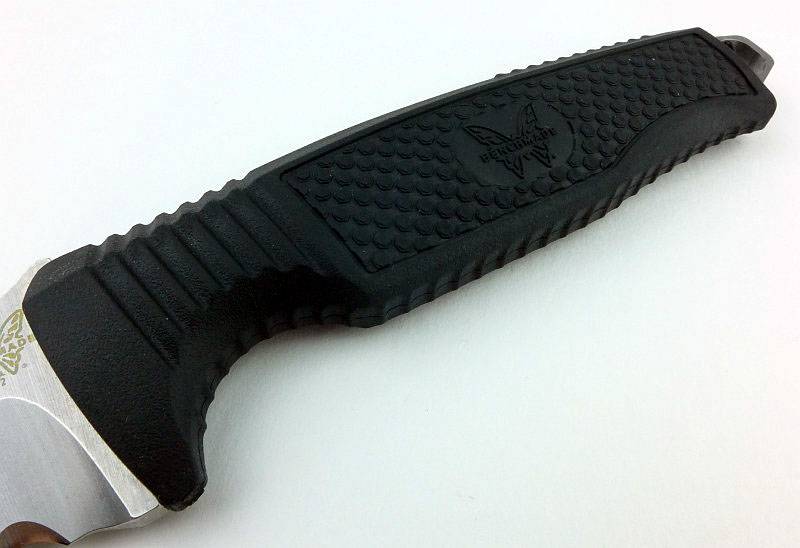
Surprisingly missing from some dive knives, the 112S has a lanyard hole.
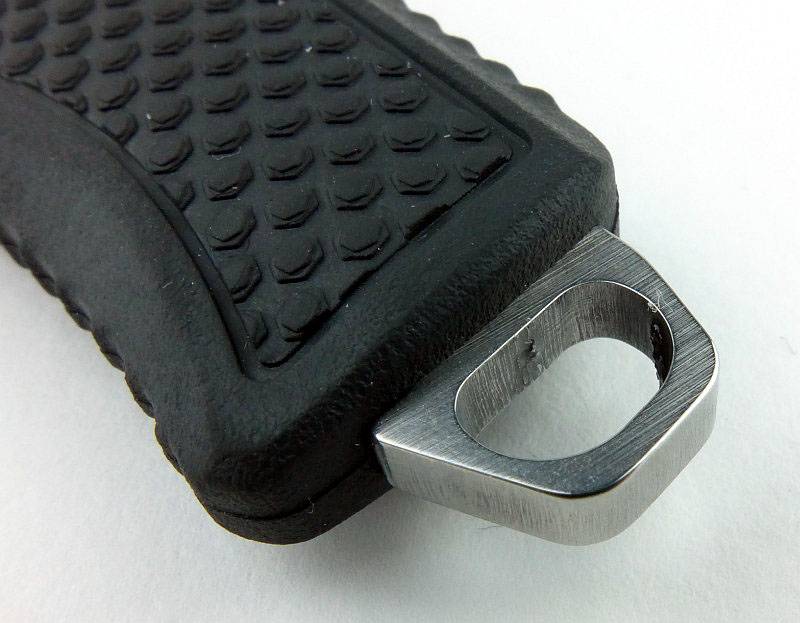
On the spine is a small protrusion; it is this that the retaining clip locks onto to keep it secure in the sheath.
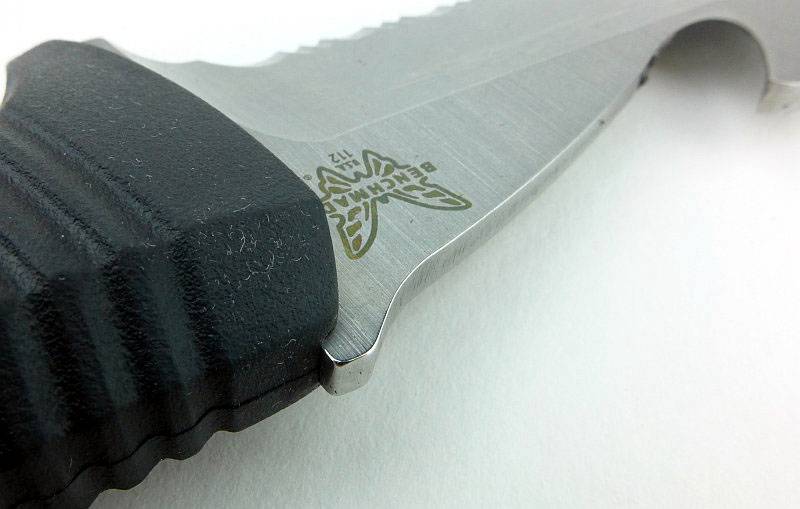
Part of what makes the 112S look strange, but yet which gives it its excellent cutting power is the chisel grind used for the main edges. This is the back of the blade and it is essentially just flat steel.
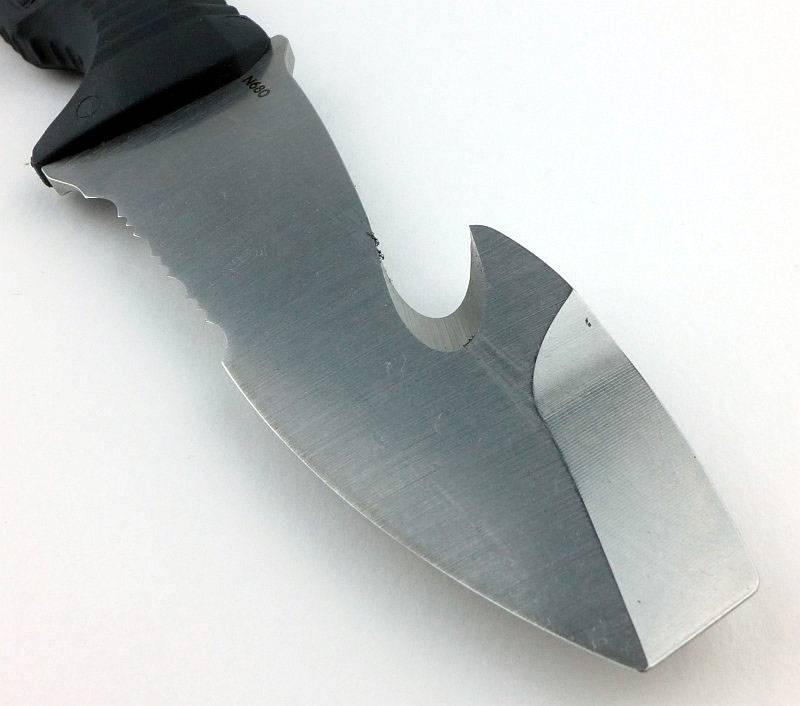
The rear of the serrations.
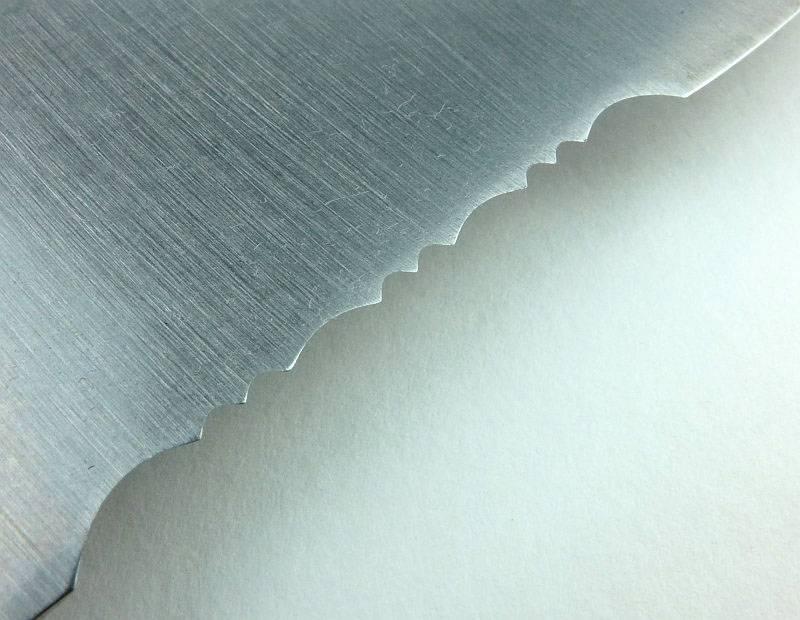
And of the plain edge.
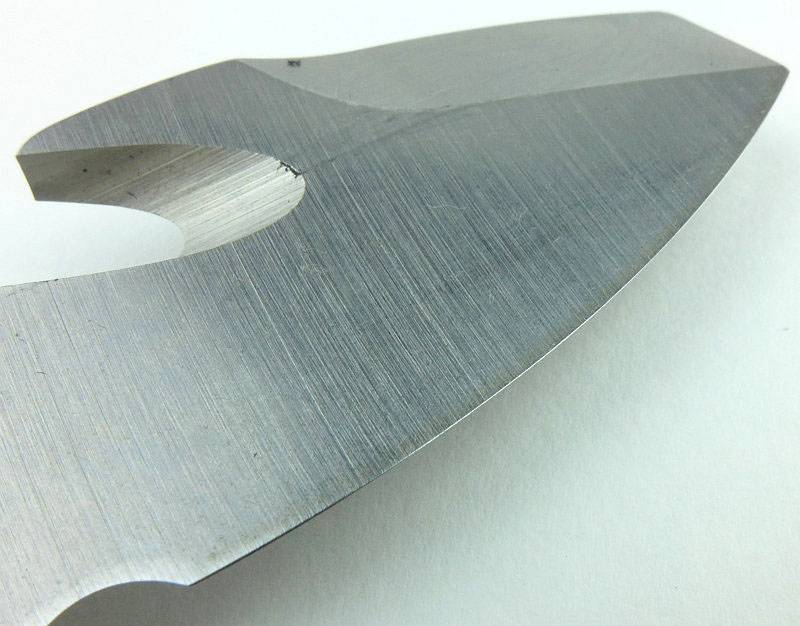
Also included in the blade design is a line cutter hook. This too is a chisel grind and is cut the opposite way to the main edges (back to front instead of front to back).
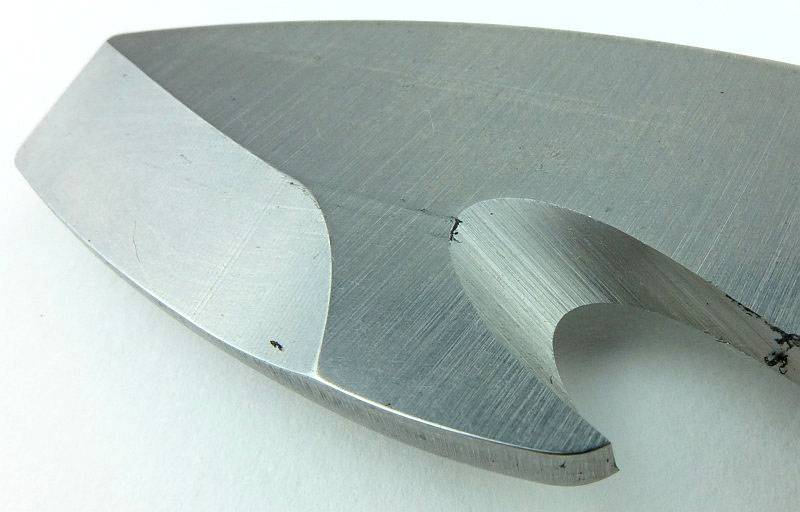
Looking along the blade from the flat side.
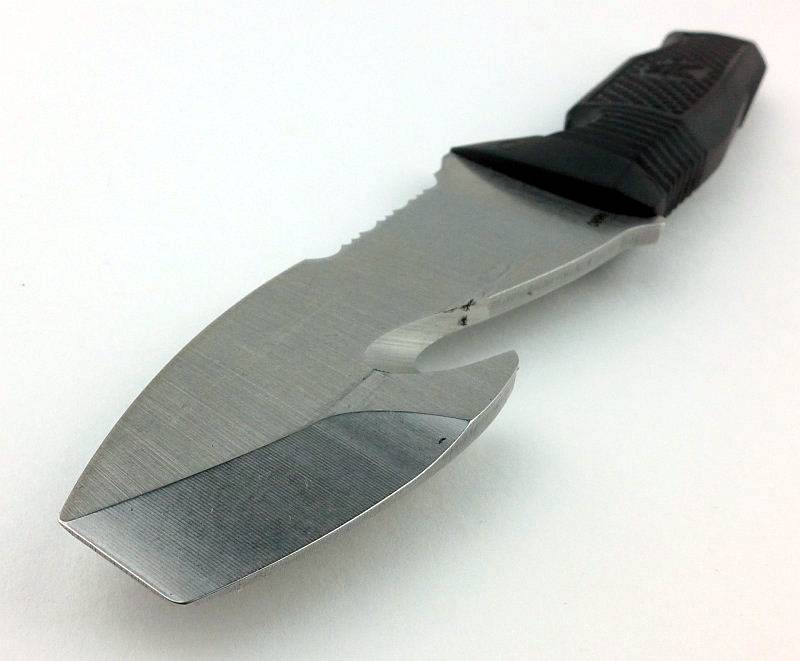
What it is like to use?
Coming from a well respected knife manufacturer, the 112S had a lot to live up to. One of the stranger looking knives, it might not be one which you drool over and ‘must have’. However there is purpose behind every design detail, and its cutting test results speak for themselves. Only shears equalled the cutting score of the 112S, that is quite some achievement. See the Dive Knives 2016 – Mega Test Review for more information.
Another key feature of the 112S is the sheath and the retention system. As long as you mount the sheath so that your hand falls onto the handle and your thumb onto the release lever, the drawing of the knife becomes completely natural. Your thumb presses the lever as you grip the knife and the knife can be easily withdrawn. I have found that if pulling on the knife too early, the release lever can’t ‘let go’ of the knife and you have to push the knife back into the sheath to allow it to release the lock. I particularly like that there is a slight friction fit of the knife into the sheath, so even with the lock released, it doesn’t just fall out.
For a good knife steel (N680), the 112S performed very well in the corrosion testing. Here is the raw result of this testing, but actually a lot of this rubbed off with a cloth, leaving only really the outer ring of the corrosion. Less easy to see, there is some corrsion near the handle rubber, but overall for what really constitutes complete neglect, the 112S did not suffer any significant corrosion.
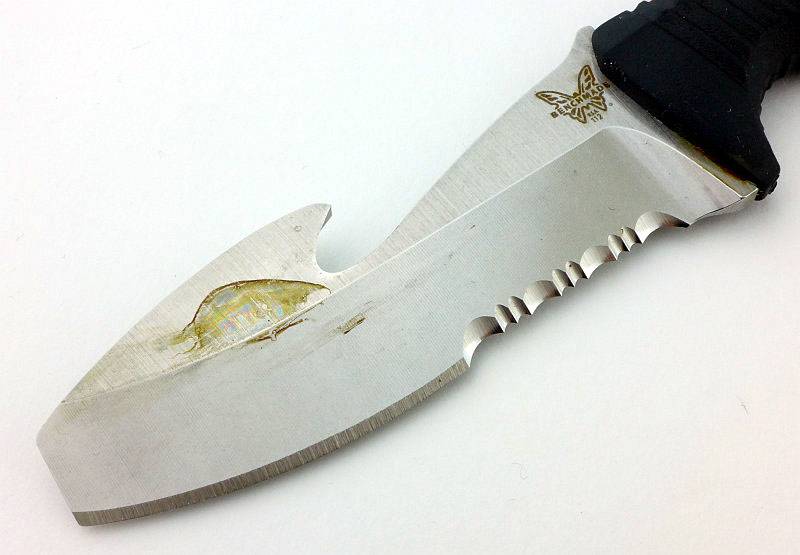
One concern I had was about only a single strap being provided, and this was for two reasons. Firstly was comfort of fit – with two straps you don’t need either to be too tight, but secondly and perhaps more importantly, in case a strap snapped, was cut, or became snagged on something, once that single strap has failed you could lose the knife.
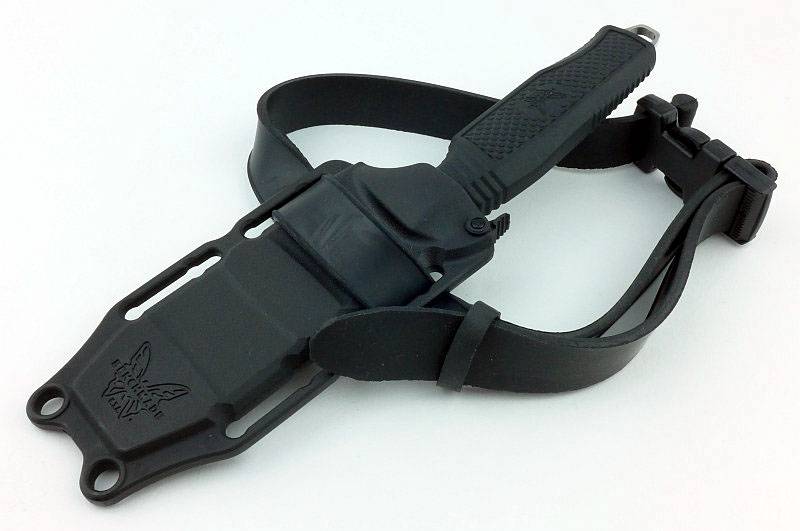
However, my concerns over comfort proved not to be realised at all, and the strap is a good quality so felt secure enough. As long as you check its condition regularly it should be reliable.
In the Dive Knives 2016 – Mega Test Review I did express a preference for one of the knives on test, but that was in relation to a general purpose backup knife. If I were expecting a lot of cutting work, then the Benchmade 112S would jump right up there and would be my pick of the bunch as a quality cutting and prying tool.
Review Summary
The views expressed in this summary table are from the point of view of the reviewer’s personal use. I am not a member of the armed forces and cannot comment on its use beyond a cutting tool or field/hunting knife.
Something that might be a ‘pro’ for one user can be a ‘con’ for another, so the comments are categorised based on my requirements. You should consider all points and if they could be beneficial to you.
| _______________________________________________ | _______________________________________________ |
| Things I like | What doesn’t work so well for me |
| _______________________________________________ | _______________________________________________ |
| Excellent cutting performance. | Only a single leg strap. |
| Great ergonomics for knife and sheath. | Slight concern over the corrosion resistance of the ‘music wire’ spring used for the sheath lock. |
| Sheath is easy to use and secure. | |
| Strong prying tip. | |
| Very good corrosion resistance. |
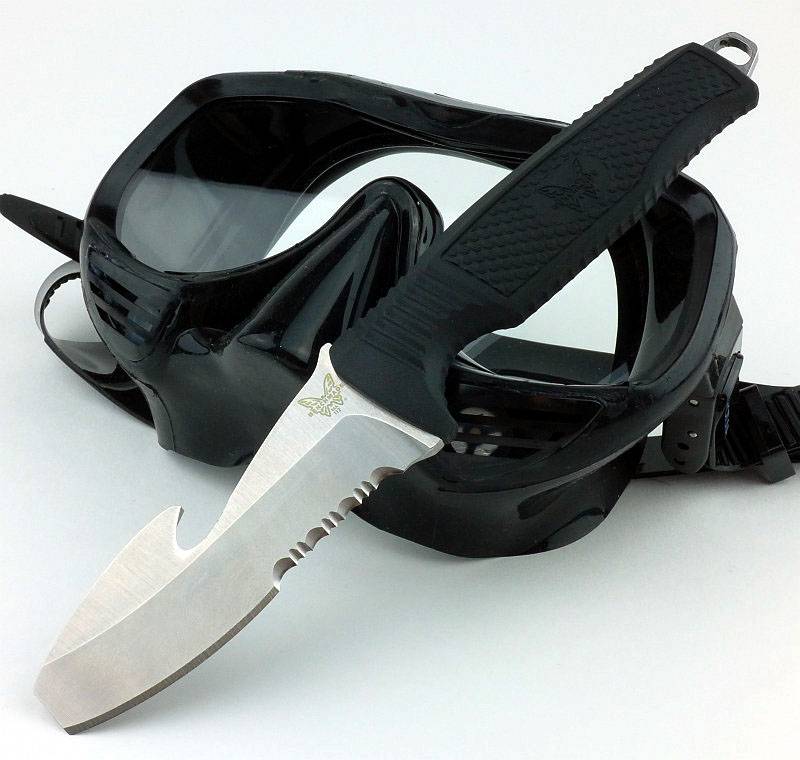
Discussing the Review:
Please feel free to add comments to the review, but the ideal place to freely discuss these reviews is on a forum. If you started reading the shorter forum version of the review, but followed the link this full exclusive review, please return to that forum to discuss the review there.
If you read the review entirely on Tactical Reviews, please consider one of the following to join in any discussion.
EdgeMatters – Sponsored Reviews (UK based Forum for Knife Makers and Collectors)
BladeForums – Knife Reviews (US based Forum for Knife Discussion)
CandlePowerForums – Knife Reviews Section (Largest and Friendliest Flashlight Community Forum)
